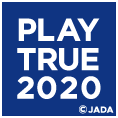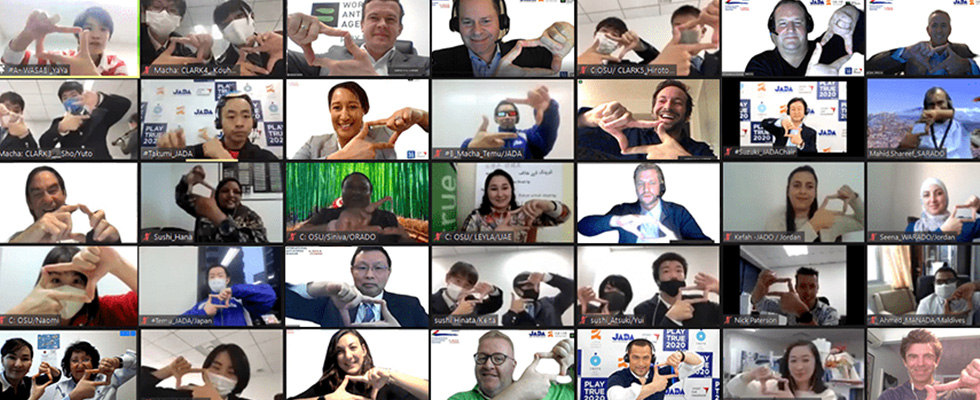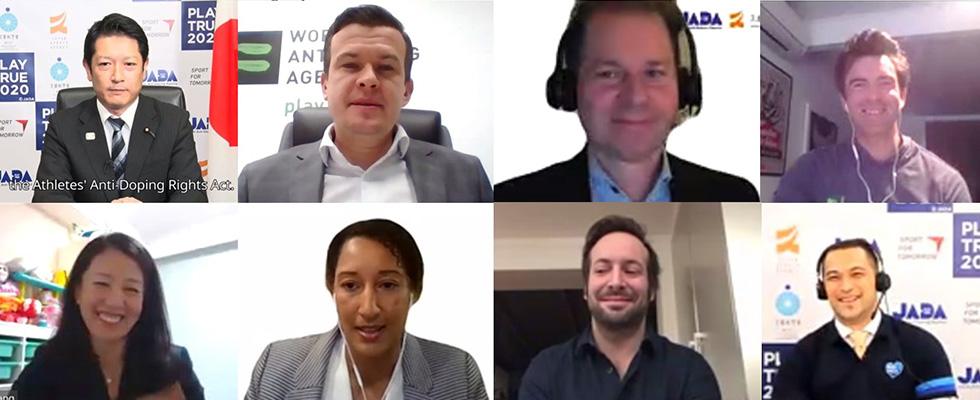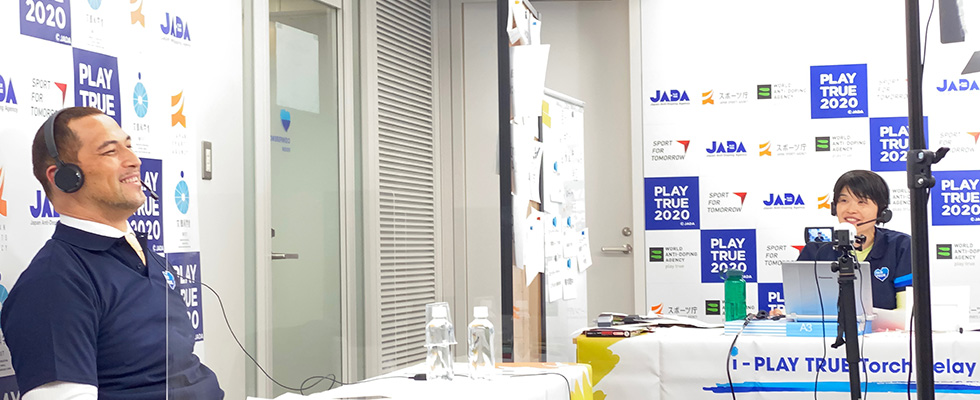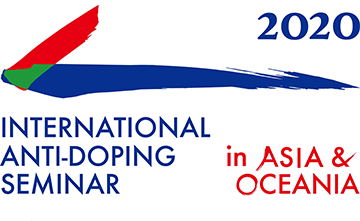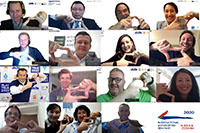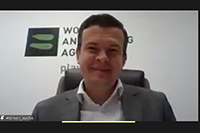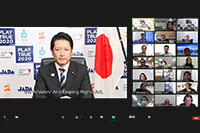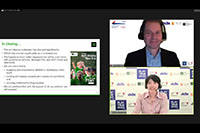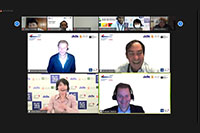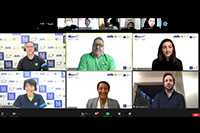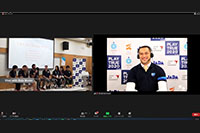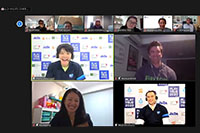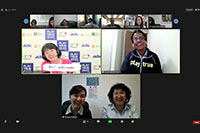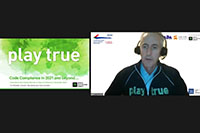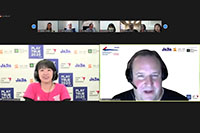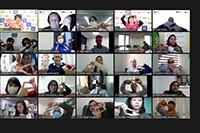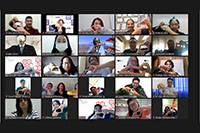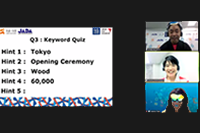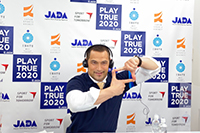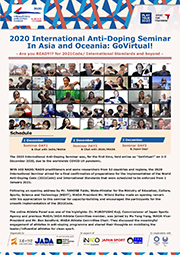International Anti-Doping Seminar in Asia and Oceania
Organised by

Due to the worldwide COVID-19 pandemic, the 2020 International Anti-Doping Seminar was, for the first time, held online as “GoVirtual!” on 1-3 December 2020.
With 165 NADO/RADO practitioners and some researchers from 52 countries and regions, the 2020 International Seminar aimed for a final confirmation of preparations for the implementation of the World Anti-Doping Code (2021Code) and International Standards that were scheduled to be enforced from 1 January 2021. Following an opening address by Mr. TANOSE Taido, the State-Minister for the Ministry of Education, Culture, Sports, Science and Technology (MEXT), WADA President Mr. Witold Bańka made an opening remark with his appreciation to this seminar for capacity-building and encouraged the participants for the smooth implementation of the 2021Code.
The online athlete panel was one of the highlights: Dr. MUROFUSHI Koji, Commissioner of Japan Sports Agency and previous WADA/JADA Athlete Committee member, was joined by Ms Yang Yang, WADA Vice-President and Mr. Ben Sandford, WADA Athlete Committee Chair. They discussed the meaningful engagement of athletes in anti-doping programme and shared their thoughts on mobilizing the leader/influential athletes for clean sport.
Supported by:
・Ministry of Foreign Affairs of Japan (MOFA)
・Japan Sport Council (JSC)
・Institute of National Anti-Doping Organisations (iNADO)
Partnered with:
・The Tokyo Organising Committee of the Olympic and Paralympic Games
01
Final Phase for Each Readiness for 2021Code and the International Standards
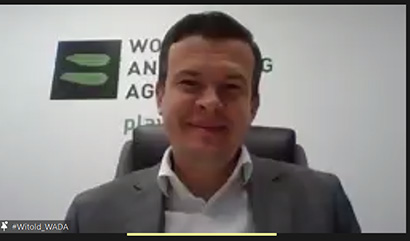
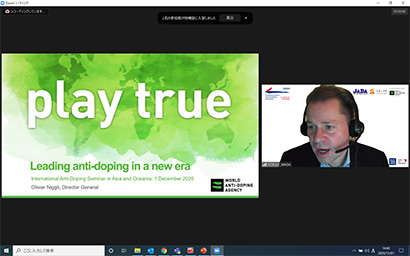
In his opening message, Mr. TANOSE Taido, the State Minister of MEXT, emphasised a need for a close collaboration to protect clean sport in the world, and also the Japan’s continuous commitment for creating a legacy of the Tokyo 2020 Games through anti-doping activity.
WADA President Mr. Witold Bańka highlighted the need to further strengthen the unity of the anti-doping community. Mr. Olivier Niggli, WADA Director General, explained: 1) that anti-doping activities were continuous while considering the public health and the rights of athletes amid the COVID-19 pandemic; 2) various initiatives based on WADA’s Five-Year Strategic Plan under the theme ‘Leading Anti-Doping in a New Era’; 3) how the independence and capacity of the Intelligence and Investigations Department has strengthened; 4) how WADA has initiated the support for compliance with newly launched Code Implementation Support Program (CISP); and 5) the progress of the WADA governance reforms.
Mr. Julien Sieveking, WADA Legal Director, and Mr. Richard Young of the Code Drafting Team explained the main changes, new concepts and terms in the 2021Code. Just prior to the enforcement of the 2021Code, the participants were able to deepen their understanding of the updated Code.
WADA Press Release >>
02
Effective Implementation of the International Standard for Education (ISE) and Meaningful Athlete Engagement
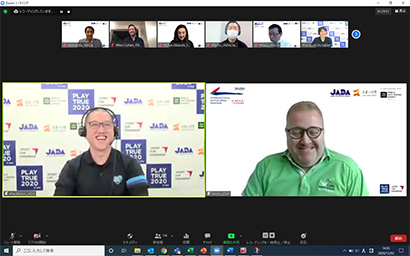
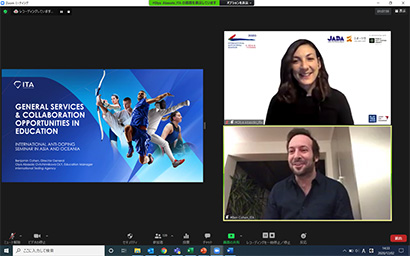
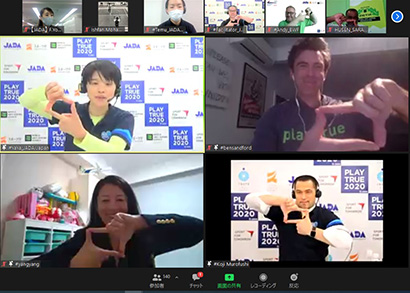
Ms. Amanda Hudson, WADA Education Director, reaffirmed the principle of “Education First”, which is aspired in the new “International Standard for Education (ISE)”. She reminded that ISE requires the ADO to set an annual Education Plan and an Education Pool, train and accredit an Educator and conduct monitoring and evaluation.
The International Testing Agency (ITA), which was established by the IOC as the “Delegated Third Parties” and is delegated by more than 45 International Federations (IFs), explained about their general services and the importance of collaboration with the National Anti-Doping Organizations (NADO) in Asia and Oceania, not only for testing but also for education activities like an “Event-Based Education”.
The partnership between the Badminton World Federation (BWF) and JADA since 2012 was shared as a good practice for maximizing the impact of education and utilising the respective strengths to bring the mutual benefits.
Mr. Ben Sandford, WADA Athlete Committee Chair, WADA Vice President Ms. Yang Yang, and Japan Sports Agency Commissioner Mr. MUROFUSHI Koji, all of whom were the top-level athletes and are in a leadership position, came together online to highlight the significance of the Athletes’ Anti-Doping Rights Act (bringing all the rights found throughout the Code and International Standards together in one document) led by the athletes of the world. There was a broad exchange of opinions concerning meaningful athlete engagement for preserving the integrity of sport, athlete education, and educating athletes through sporting values. They agreed and stressed that Athletes wish to join the anti-doping activities and contribute towards clean sport. The NADO/RADO community were encouraged to leave its door open to maximize the opportunities to engage the Athletes.
03
Confirmation of the Steps towards Compliance with the 2021Code
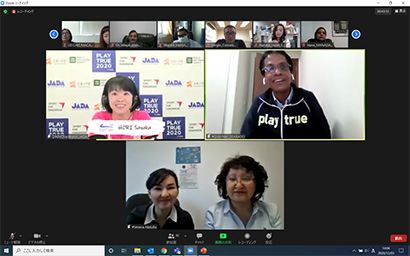
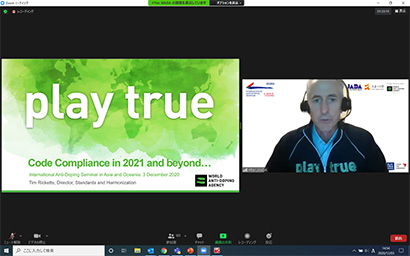
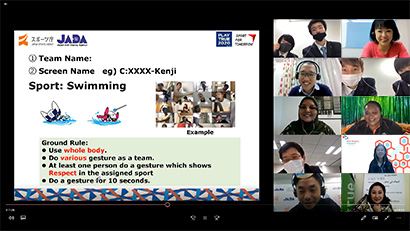
The Southeast Asia Regional Anti-Doping Organization (SEARADO) and the Central Asia Regional Anti-Doping Organization (RADOCA) who signed MOU with JADA, shared their regions’ readiness for the implementation of the 2021Code. In the panel, while casting a glance at the results of online voting by the seminar participants regarding their preparations for the 2021Code, the significance of a close partnership was highlighted in terms of getting inputs for the structural approach to various activities and learning the good practices.
By illustrating the status of approval on national anti-doping rules in Asia and Oceania regions, Mr. Tim Ricketts, WADA Standards & Harmonization Director, clarified some of the roles and responsibilities of NADOs based on the 2021Code in the areas of doping control, intelligence and investigations, whereabouts monitoring, results management, TUE (Therapeutic Use Exemption), and education. In readiness for the scheduled Code Compliance Questionnaire (CCQ), it was emphasized that NADOs not only need to be compliant with the minimum requirements in the Code, but also require a system for the effective implementation, monitoring and evaluation. It was emphasized that more proactive actions matter than being reactive to the CCQ and Audit.
Following the seminar, the “Japan Day! – Virtual Sport-Values Activity” brought together both the clean sport practitioners and high school student from Clark Memorial International High School, Yokohama campus (a member of the Sport for Tomorrow Consortium). Based on the concept that sport plays a significant role in resolving social issues, the participants had fun with an online sport activity that was developed by the students during the ‘stayhome’ period inspired by inputs from JADA particularly focused on the value-based perspective.
